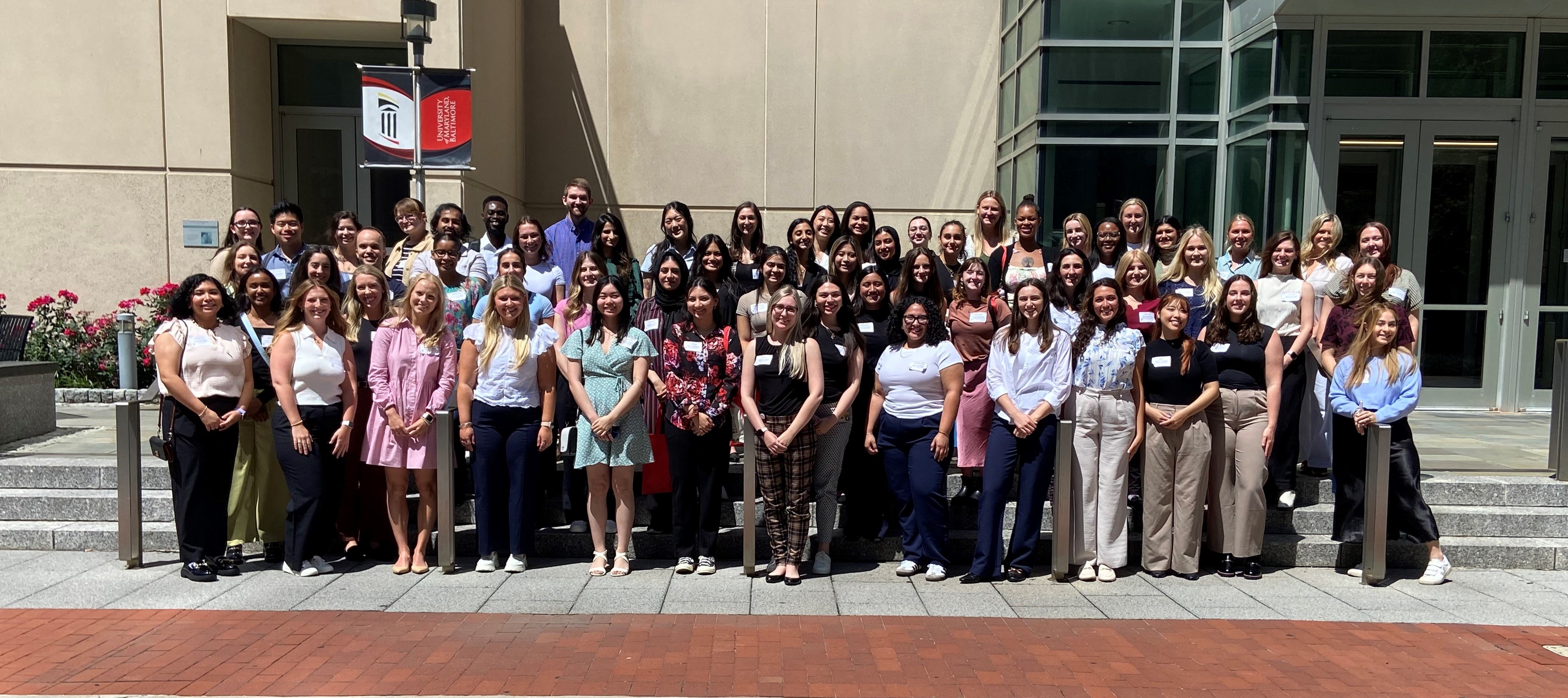Graduates of the UMB Physician Assistant Program must have the attitudes, knowledge, and skills to function in a broad variety of clinical situations and render a wide spectrum of care. With that, the Program maintains certain minimum technical standards that must be met by all candidates for admission and current students, with or without reasonable accommodation.
Technical standards, as distinguished from academic standards, refer to those physical, cognitive, and behavioral abilities required for satisfactory completion of all aspects of the curriculum, including development of professional attributes required by the faculty of all students at graduation. A candidate for the Master of Science in Health Science degree, Physician Assistant concentration must not only maintain good physical and mental health, but also have abilities and skills in five attributes, including observation; communication; motor; intellectual; and behavioral and social. Accommodation can be granted under appropriate circumstances to enable a student to satisfy the technical standards; however, a student is not qualified to be in the Program or to graduate, if they cannot meet the technical standards with or without reasonable accommodation, which is determined by the Program and the campus Office of Student Educational Support and Disability Services.
UMB PA Program Technical Standards
Good Physical and Mental Health: The candidate must possess sufficient physical stamina and mental stability, with or without reasonable accommodations, to fulfill the requirements of the Program and the requirements of the profession, which include but are not limited to: Work for 8 -12 hours performing physical tasks requiring physical energy without jeopardizing patient and student safety, such as bending, lifting, turning, and ambulating patients. Perform fine motor movements and be able to manipulate instruments and equipment. Tolerate physically taxing workloads. Function effectively under stress.
Observation: The candidate must be able to observe demonstrations and participate in experiments in the basic sciences, including but not limited to physiological and pharmacologic demonstrations in animals, human cadavers, microbiologic cultures, and microscopic studies of microorganisms and tissues in normal and pathological states. A candidate must be able to observe a patient accurately at a distance and close at hand. Observation necessitates the functional use of the sense of vision and somatic sensation. It is enhanced by the functional use of the sense of smell.
Communication: A candidate should be able to speak, hear, and observe patients to elicit information, describe changes in mood, activity, posture, and perceive nonverbal communications. A candidate must be able to communicate effectively and sensitively with patients. Communication includes not only speech but reading and writing. The candidate must be able to communicate effectively and efficiently in oral and written form with all members of the healthcare team, including fellow students, faculty, preceptors, and administrators. Candidates must demonstrate proficiency in English as required by Maryland state licensure.
Motor: Candidates should have sufficient motor function to elicit information from patients by palpation, auscultation, percussion, and other diagnostic maneuvers. A candidate should be able to perform interventions, including but not limited to catheterization and paracentesis. A candidate should be able to execute motor movements reasonably required to provide general care and emergency treatment to patients. Examples of emergency treatment reasonably required of physician assistants include but are not limited to cardiopulmonary resuscitation, the administration of intravenous medication, the application of pressure to stop bleeding, the opening of obstructed airways, the suturing of simple wounds, and the performance of simple obstetrical maneuvers. Such actions require coordination of both gross and fine muscular movements, equilibrium, coordination, and functional use of the senses of touch and vision.
Intellectual-Conceptual, Integrative and Quantitative Abilities: These abilities include measurement, calculation, reasoning, analysis, and synthesis as well as the ability to establish and work toward goals in a consistently responsible, realistic manner. Problem solving, the critical skill demanded of physician assistants, requires all these intellectual abilities. In addition, the candidate should be able to comprehend three-dimensional relationships and to understand the spatial relationships of structures as well as interpret diagnostic tests such as ECGs and x-rays.
Behavioral and Social Attributes: Emotional health required for full utilization of their intellectual abilities, the exercise of good judgment, the accurate and prompt completion of all responsibilities attendant to the diagnosis and care of patients, and all other responsibilities of a student enrolled in the Program. Development of mature, sensitive, and effective professional relationships with patients, faculty, staff, preceptors, and other members of the healthcare team. They must be able to adapt to changing environments, to display flexibility, and to learn to function in the face of uncertainties inherent in the clinical problems of many patients. Compassion, integrity, concern for others, interpersonal skills, interest, and motivation are all personal qualities that are assessed during the admissions and education processes.
*Adopted from “Recommendations of the AAMC Special Advisory Panel on Technical Standards for Medical School Admission,” approved by the AAMC Executive Council on January 18, 1979.
